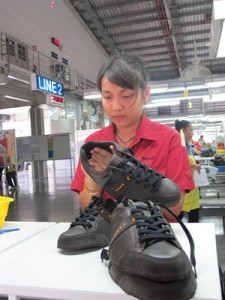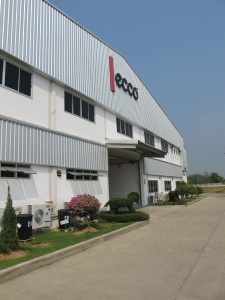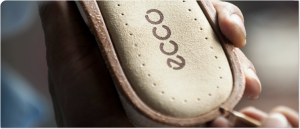The closure of one ECCO Thailand factory in the northern Thai province of Pichit was part of an ongoing consolidation of production geared towards more efficient quality and cost control and future expansion, a senior executive of the Danish company said.
Panos Mytaros, ECCO Group Executive Vice President, in a statement on 12 November 2013 in response to ScandAsia’s earlier report on the Pichit plant’s shutdown, said ECCO Thailand was in the process of consolidating all its production activities in Thailand in Ayutthaya, 80 km north of Bangkok. This is where the company today has a tannery and a complete shoe factory with both stitching of uppers and direct sole injection to manufacture finished shoes.

“The reason for consolidating all production activities at one site is to improve quality and cost of operations and hence the quality and cost of ECCO shoes. This is an important initiative to ensure that ECCO Thailand stays competitive in terms of both price and quality,” says Mytaros.
Over the next 20 months capacity will be expanded from currently 10 to 20 stitching lines. Each stitching line is on average manned by 45 employees. The factory will house four direct injection machines to produce finished shoes. In connection with the capacity increase ECCO will recruit and employ approx. 1,000 employees for the 10 new stitching lines.
Since the severe flooding in Thailand in 2011 ECCO has invested significantly in rebuilding the factory in Ayutthaya. Also, the site is now better secured against flooding, and the factory itself has been modernised and refurbished to support a high-quality, efficient production set-up.
 A total of 1,150 employees in the factory in Phichit will become redundant, but will have the opportunity to relocate to the Ayutthaya factory.
A total of 1,150 employees in the factory in Phichit will become redundant, but will have the opportunity to relocate to the Ayutthaya factory.
“We hope that as many employees as possible will apply for the open positions we will have in Ayutthaya as we increase our capacity there. These are skilled employees that we would very much like to re-employ in Ayutthaya. And we would be happy to assist with and facilitate relocation from the Phichit area to Ayutthaya,” says Panos Mytaros.
Employees in Phichit that do not wish to relocate with their families to Ayutthaya will be treated fairly with severance pay in accordance with Thai labour law.
“Whereas we are pleased to be able to maintain our planned level of production in Thailand via this relocation of activities to Ayutthaya, we truly regret to have to say goodbye to a number of employees who have worked hard to support our company – not least in the wake of the terrible flooding two years ago,” says Panos Mytaros.
In addition to ECCO’s tannery and shoe production, the site in Ayutthaya also houses important corporate global functions: the ECCO Shoe Making Academy, where the future shoemakers of ECCO are educated and trained; the ECCO Leather Academy, where the future leather and tanning specialists of ECCO are educated and trained; ECCO Engineering and Mould, which develops and produces moulds for the group; and a section of ECCO Global IT.
Gitsada Boonchirt, Vice Managing Director of ECCO Tannery Thailand, in an interview with ScandAsia, denied that the shutdown of Pichit plant had anything to do with the countrywide THB300 minimum daily wage introduced by the Thai government at the beginning of 2013.
The average minimum daily wage where ECCO had factories in 2011 ranged from THB170-180 jumped to THB300 when the Thai government introduced the universal daily wage on 1 January 2013.
“The average skilled worker on full-time employment at ECCO is paid between THB500-600 per day, which far exceeds the minimum daily wage,” Gitsada said, adding that the amount includes living, transportation and other allowances as well as a range of incentives.
At present, the annual output of ECCO Thailand from its sole factory in Ayutthaya, which employs about 3,000 workers, is 3.2 million pairs of shoes, he said. This will be raised to 3.5 million in 2014 and 3.8 million in 2015.
Earlier, an official of the Danish shoe manufacturer was quoted by Pichit provincial officials as saying the closure of factory could be attributed to rising production cost linked to universal daily wage hike, which pushed up production cost to a point where it was no longer viable to keep the plant in the northern province open.
Founded in 1963, ECCO is the only major shoe manufacturer in the world to own and manage every step of the shoemaking process. Today, ECCO products are sold in 85 countries at 1,100 ECCO stores and 14,000 other sales locations. The company is family-owned and the workplace to 19,500 employees from over 50 countries. In 2012, revenue increased by 14 % to DKK 8 billion with profits before tax of DKK 1.1 billion.


It is strange how the explanation changes. The story was different when the Pichit factory opened. See my article from the factory visit here: http://issuu.com/scandasia/docs/tradenewsmar2011/16
Do a little math: 1000 workers jumps 120 baht per day and works 21 days per month. The wage jump probably added 2 mill Baht per month to ECCO’s labour cost.